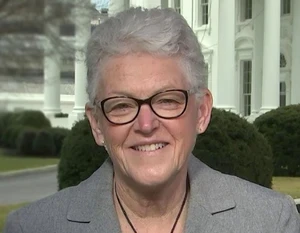What is the Conflict Between the US & China?
The conflict between the US and China stems from competing economic systems and escalating tensions over trade, security and military power. The US accuses China of harmful economic practices, including the trade of illicit goods, use of forced labour and theft of sensitive technologies, which threaten American economic and security interests. Additionally, China's rapid military development challenges US military dominance, intensifying geopolitical rivalries. This trade and security conflict reflects broader struggles for global influence, with each nation vying to shape the international order in line with its economic model and strategic ambitions, creating significant global uncertainty.
Source: US Government Accountability Office & Council on Foreign Relations
What is the Current Relationship Between China & the US?
US-China relations in 2026 are defined by strategic rivalry and cautious engagement. Both nations aim to manage their competition to avoid conflict while seeking opportunities for collaboration on global challenges.
Economic & Technological Competition
Economic and technological competition dominates the relationship, with the US imposing tariffs and restricting technology transfers to counter China's perceived unfair trade practices. China, in turn, prioritises economic self-reliance and technological advancement. Military tensions persist in the South China Sea and Taiwan Strait, fueled by U.S. freedom of navigation operations and support for Taiwan, which Beijing strongly opposes. Despite these challenges, recent diplomatic engagements signal efforts to stabilise the relationship. High-level meetings focus on improving communication channels and fostering peaceful coexistence. Both nations recognise the importance of dialogue to address mutual concerns.
There are limited but significant areas of cooperation, including climate change, nuclear non-proliferation and public health. Acknowledging their roles as global powers, the US and China have agreed to collaborate on climate initiatives, among other issues. While both sides are working to avoid escalation, deep economic, ideological and strategic differences remain. The coming years will determine whether the two powers can establish a stable framework for coexistence or if their rivalry will escalate further.
Source: Carnegie Endowment for International Peace, Chatham House, Center for Strategic & International Studies
What are the Most Pivotal Events in US-China Relations?
1949:
Establishment of the People's Republic of China (PRC)
- The Chinese Communist Party established the PRC, leading the US to end diplomatic ties with China and impose an economic embargo
1950 - 1953:
Korean War
- China entered the Korean War in support of North Korea, going against US-led United Nations forces, intensifying hostilities between the US and China
1979:
Normalisation of Diplomatic Relations
- The US and China establish formal diplomatic relations, with the US acknowledging the One China policy
1989:
Tiananmen Square Incident
- The Chinese government's crackdown on pro-democracy protesters leads the US to impose sanctions and temporarily halt military sales to China
2001:
China Joins the World Trade Organization (WTO)
- China joining the WTO significantly boosted trade between the two nations
2014:
US-China Climate Agreement
- The US and China announced a joint climate agreement to reduce carbon emissions, a landmark step in global environmental cooperation
2018 -2020:
US-China Trade War
- The US imposed tariffs on Chinese goods, accusing China of unfair trade practices
2021:
US-China Collaboration on Global Health
- Despite ongoing tension, the US and China cooperate on global health initiatives, particularly in combating COVID-19 and advancing vaccine distribution
2023:
Spy Balloon Incident
- A Chinese reconnaissance balloon is detected over US airspace, leading to diplomatic protests from China
High-Level Diplomatic Engagements
- The US National Security Adviser, Jake Sullivan, met with the Chinese diplomat Wang Yi, initiating discussions to stabilise relationships
2024:
Biden-Xi Meeting
- During the Asia-Pacific Economic Cooperation summit, then President Joe Biden and President Xi Jinping held talks emphasising the importance of a stable US-China relationship
2025:
Donald Trump's Return to US Presidency
- Inaugurated in January 2025, Trump's return to the White House has seen an increase of trade war actions with his tariff sanctions on countries such as China, putting strain on their respective economic relations
Source: Council on Foreign Relations
Trump–Xi Meeting in Busan
- Donald Trump and Xi Jinping met on the sidelines of the APEC summit, agreeing a short-term truce that paused new tariffs and export controls. The talks eased immediate tensions but left deeper economic and security rivalries unresolved, reinforcing the fragile, stop-start nature of modern US–China relations.
Source: Brookings
The US-China relationship is both multifaceted and divisive, reflecting a mix of competition and perceived hostility. According to recent statistics, 42% of Americans view China as an enemy, while 50% regard it as a competitor. These perceptions highlight the dual nature of the relationship, characterised by economic rivalry and geopolitical tension. In January 2025, Donald Trump was inaugurated as the 47th President of the United States, which has led to further impacts on the already turbulent relations between China and America.
While the two nations collaborate on global challenges like climate change and trade, disputes over technology, territorial claims, and human rights remain significant points of contention. Understanding these dynamics is essential for businesses, policymakers, and leaders seeking to navigate the complexities of this critical bilateral relationship.
If you are interested in hiring a keynote speaker to help you understand geopolitical relations, such as the US-China relations, contact Champions Speakers today! Call one of our booking agents on 0207 1010 553 or complete our online contact form.

















